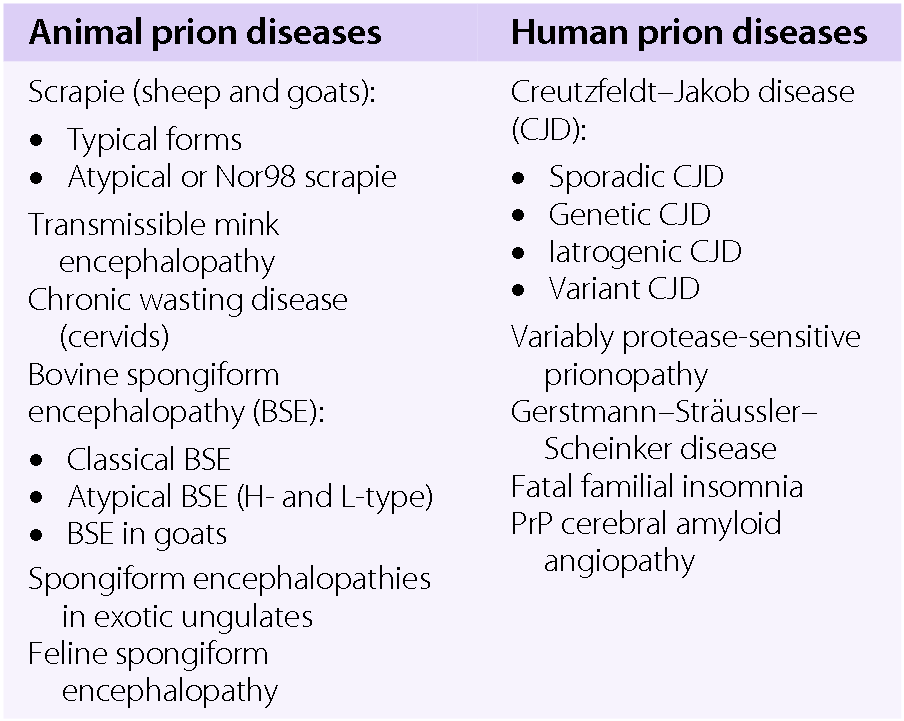Reference




OpenAI's Answer
Human prion diseases, often referred to as transmissible spongiform encephalopathies, are rare, progressive neurodegenerative disorders caused by misfolded prion proteins. Here are some common symptoms and clinical signs associated with these diseases:
-
Neurological Symptoms:
- Memory loss: Often severe, leading to rapidly progressive dementia
- Coordination and balance difficulties: Ataxia, incoordination, and difficulty walking
- Visual disturbances: Visual problems are frequently observed
- Muscle issues: Muscle stiffness, spasms, and involuntary twitching
- Speech difficulties: Trouble speaking and swallowing
- Seizures: Occasionally present, especially in advanced stages
-
Psychiatric Symptoms:
- Anxiety and depression: Prominent in some forms such as variant Creutzfeldt-Jakob disease (vCJD)
- Confusion and agitation: Cognitive decline leading to confusion and possibly aggressive behavior
-
Other Symptoms:
- Sleep disturbances: Severe insomnia is a characteristic of certain prion diseases like Fatal Familial Insomnia (FFI)
- Behavioral changes: May include personality changes, withdrawal, and apathy
Given the progressive nature of these diseases, symptoms generally worsen over time, often leading to severe impairment and ultimately being fatal.
References:
Relevant Images:


For more in-depth information, you can refer to specialized medical literature and guidelines.
Follow Up
Related
How do errors in language interpretation affect clinical encounters with limited English-proficient
What are the notable contributions of Roberto Paganelli in clinical immunology?
What research methods are effective in engaging ethnically diverse communities in clinical studies?
Who admitted Long John Baldry to the London Clinic due to gout?
Why was Chenjerai Hunzvi's medical clinic labeled a 'torture chamber' by Amnesty International?